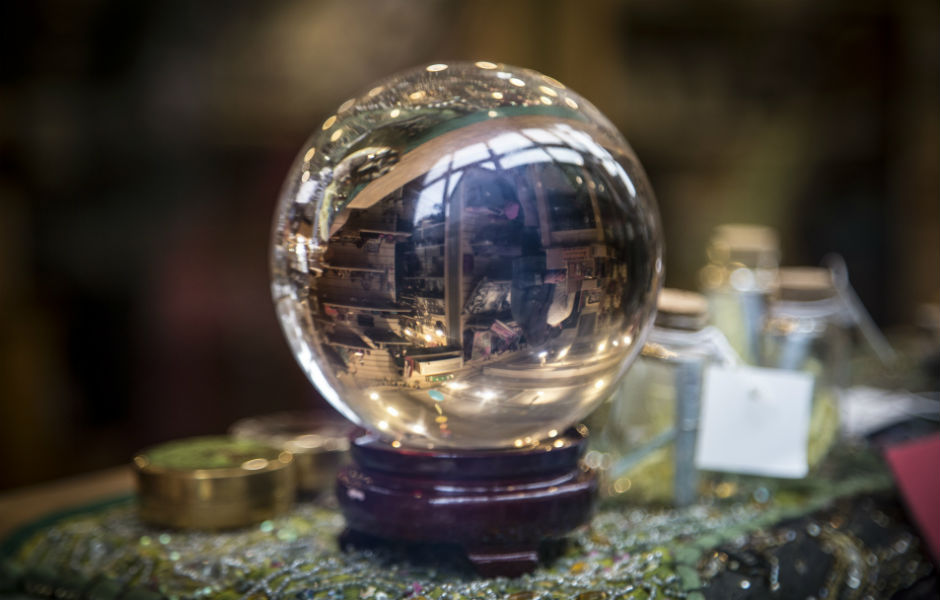When it comes to mental disorders and psychology, occult involvement is an overlooked area. Typical, in the psychiatric and psychological profession, many mental disorders — like depression and psychopathy — are not ordinarily associated with the occult.
Nevertheless, mysticism, spirituality, and religion share some of the main themes and concepts of occultism. They deal with “invisible” processes, powers, and phenomena.
Notably, the majority of therapists refuse to link depression with any form of occult, magic, or witchcraft contribution — affirming that many types of depression result from a chemical imbalance.
However, some experts note that usually a combination of events and a variety of long-term or personal factors — rather than one immediate issue — may trigger a bout of depression or anxiety.
An article published in Open Theology titled, “Psychopathy and Depression as Predictors of the Satanic Syndrome,” suggests contact with satanic and occult rituals may trigger off psychopathological reactions like depression and psychopathy.
In addition, there are an increasing number of theologians accepting occultism as a significant cause of mental disorders and illnesses.

The Satanic Syndrome
Dr. Zlatko Šram from Croatian Center for Applied Social Research conducted extensive research on causes of depression and psychopathy. He contends that people who practice black magic or have otherwise occult bondage in their history is more vulnerable to “comorbidity of depression and psychopathy.”
Comorbidity refers to the presence of one or more additional diseases or disorders that co-occur with a primary disorder or disease.
Dr. Šram conducted an extensive survey on over one thousand participants. The results of the surveys found powerful evidence that people suffering from depression and psychopathy simultaneously are attracted to satanic practices. They find these practices as a way of getting magical power and control over their destiny.
The research categorized different esoteric practices. These practices include psychic séances, black magic, the reading of magazines and books that deal with occult and esoteric issues, and the engagement with an occult society.
The study also found that depression and psychopathy were significantly predictive of “satanic syndrome” in individuals who had been subjected to the occult involvement. These subjects suffered bouts of depression and mental disorders nearly twice as often compared to the rest of society.
Dr. Šram suggests further study of the effects of the satanic syndrome needs to be verified in psychiatric clinics and hospitals.
Mental Illness Challenges
Mental disorders are an often-ignored challenge. They include a range of conditions such as depression, bipolar disorder, panic attacks, generalized anxiety, dementia, and schizophrenia.
Although there’s available and valuable treatments for mental disorders, the amount of people seeking treatment has historically been low. Mentally ill people face a number of barriers in obtaining treatment — including stigma, treatment availability, inconvenience, and cost.
Treatment is particularly low in rural areas where there is limited access to trained mental health professionals.
Families, friends, co-workers — the list goes on — we all face countless “invisible” challenges resulting from mental disorder afflictions.
Global Burden of Mental Disorders
The growing burden of mental disorders continues to affect global health significantly. Mental disorders are responsible for causing major social, human rights, and economic consequences in all countries throughout the world.
The following is an estimated number of people with common mental disorders worldwide, according to the World Health Organization:
- Depression – An estimated 280 million people worldwide, are affected by depression.
- Bipolar disorder – Bipolar disorder affects about 40 million people worldwide.
- Schizophrenia – Schizophrenia affects close to 24 million globally.
- Dementia – Worldwide, about 55 million people have dementia.
Mental disorders are driven into the shadows because of prejudices and stigma. People with mental illnesses face a long list of challenges. The fear of losing a job, or having a social reputation ruined are included in these challenges.
The original article titled, “Psychopathy and Depression as Predictors of the Satanic Syndrome,” is available in Open Theology.
Photo courtesy of George Hodan via PublicDomainPictures.com | Cropped and Resized | CC-BY-SA-1.0
I am just now seeing it but the timing is interesting, as I began having a psychotic break around that period which was the result of occult practice. I ran from God and sought lesser gods – all the while thinking I was serving Christ. Occult is not to be trifled with – anything you encounter as a result of these practices is not to be trusted. Satan seeks to steal, kill, and destroy, and will do anything to make you destroy yourself.
It’s complicated in that Shani is the punisher and Shukracharya is the one who gives luxury and abundance. Those who undergo a benefic dasha/stage of venus in life and have over indulged themselves in luxury soon come across the next dasha of Saturn in which they are going to pay. Shukra will hand over the report book to god Shani. Shukra is Friday and Shani is Saturday. Just like Saturday comes after Friday. This is astrological point of view.
God Shani is actually friendly to Shukracharya and his assisstant Rahu (Asura Svarbhanu).
Lucifer is Shukracharya as said in this video. https://www.youtube.com/watch?v=1tAoaLazNS4. He is actually pro humanity, although hated by the dot Indians. He is the god of planet venus and stands for beauty, luxury, pleasure etc., which is not appreciated in the eastern beliefs.
Satan is a name for god Shani, the god of planet Saturn. The entity worshipped by Indians (curry/dot Indians). Lucifer is
There is much more to occult practices than being satanic. There are many branches of occultism, parapsychology that are not in any way of any dark forces. Some of these include Kabbalah, spelled Qabalah or Cabala. A discipline derived from mystic Judaism, Wicca, Astrology, Numerology. I am not necessarily saying these topics are real except for Kabbalah but I am saying they are not in any form of a dangerous , dark nature.